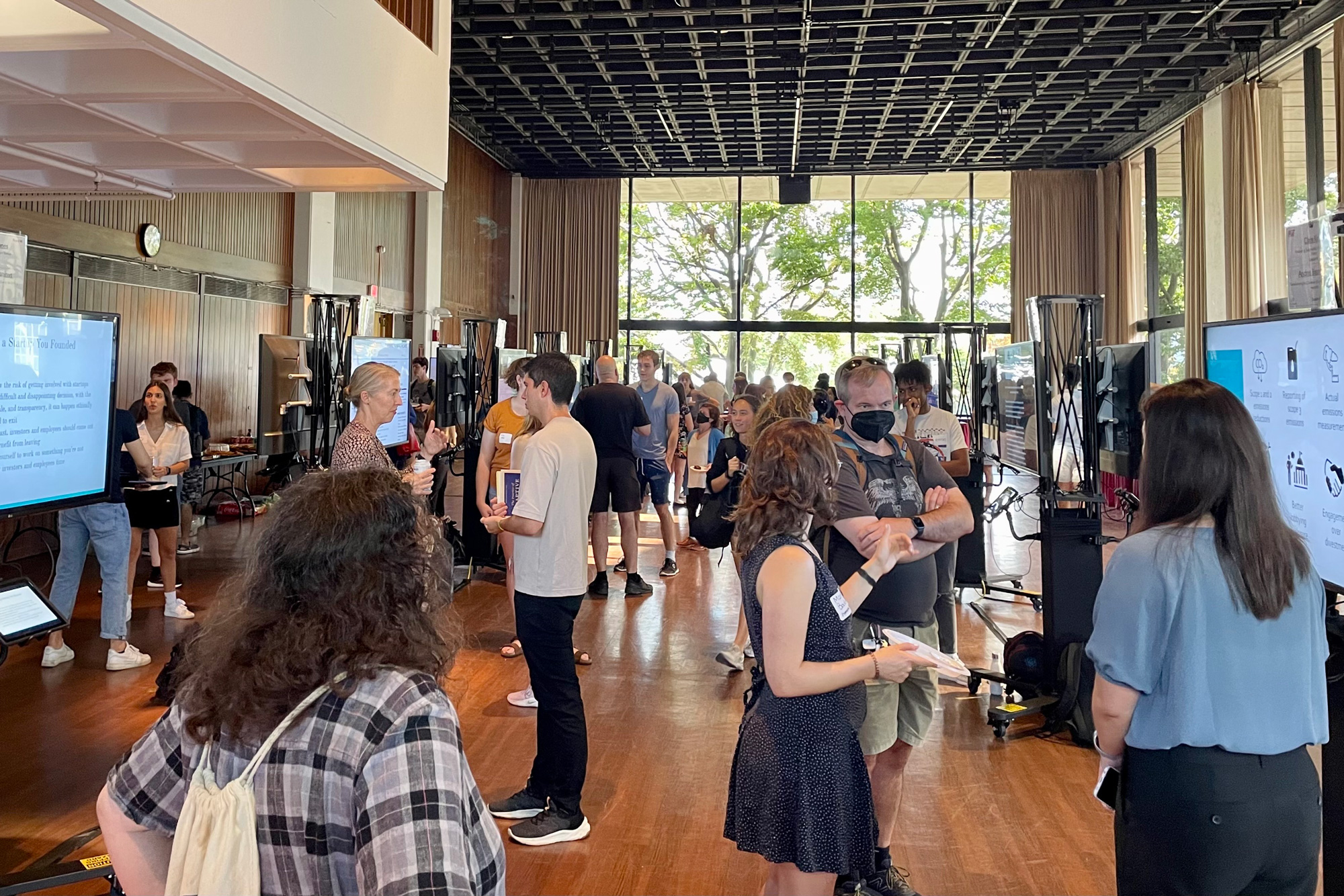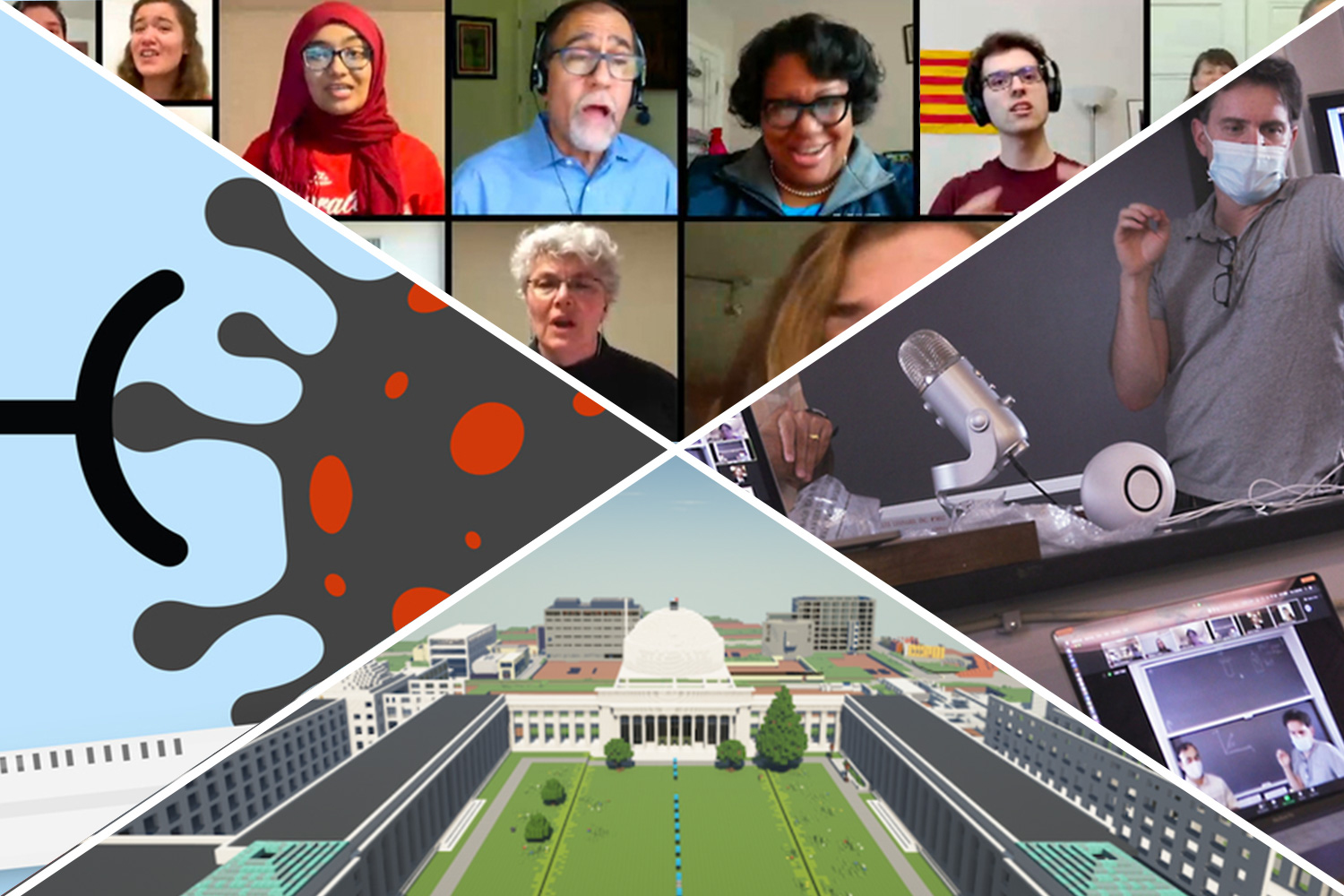Augmented Reality in Education: Looking Forward
Image Source Augmented reality is one of the cloud technologies that bridges the gap between what you see and what you imagine. To define it more realistically, it is a technology that enhances the physically existing parameters of the real world to yield enhanced results. It integrates the existing with details that we artificially engineer. For […]


Augmented reality is one of the cloud technologies that bridgesthe gap between what you see and what you imagine. To define it more realistically, it is a technology that enhances the physically existing parameters of the real world to yield enhanced results. It integrates the existing with details that we artificially engineer.
For example, in the entertainment industry, there are AR-based games, which overlay digital augmentation over real-life sceneries and environments. Consider 2016’s Pokémon GO, for instance. The game made different Pokémon pop up on your usual surroundings and routes. Thus, making tying the game to ‘reality’ and making it more fun to play. Snapchat filters are another prominent example of this technology.
Eventual Integration of AR
Currently, a survey estimates that by 2023, the world will have about 2.4 billion mobile users of augmented reality worldwide and its market will reach $72.7 billion by 2024. Considering that there were only 200 million users back in 2015, the sky-high rise in the figure is not ignorable. Needless to say, it is not only expanding its influence in the entertainment industry but is also expanding its influence in the educational industry.
Advances in Augmented reality are changing the face of app development and allowing for new innovations. Today, classrooms use apps like Dinosaur 4D+ for studying extinct creatures. These apps bring the images to life in a 3D space and allow students to rotate, zoom, and study each dinosaur in detail. Similarly, Google expeditions provide access to 100 3-dimensional expeditions. Each of these allows the students to see 3D objects in the classroom. Be it volcanoes, the moon, forest, and whatnot. Even a subject as dry and textual as chemistry is now fun to learn with AR-based apps like Element 4D. It allows students to study the chemical reactions, properties, atomic weight, and other relevant information using two paper cubes only.
Note that the Alpha Generation, i.e., the children born between 2010-2025, perceive this technology as more of a part of routine rather than an advancement or an exception, which of course, gives us more room for exploration and further discovery. In the future, we may witness the complete eradication of only book learning.
The technology is proving to be immensely useful in professional training and learning. For example, recently, NASA introduced a project called Sidekick. It aims to train the crew using virtual illustrations and instructions for effective learning. Even in military training, we see AR creating a virtual environment to better train the soldiers with the use of the equipment and enhance their skills.
Benefits of Augmented Reality in Education
Augmented reality is rapidly gaining success for a reason. There is certainly something that this technology can provide, and others can’t. Now, what exactly could these unrivaled benefits be? Let’s have a look.
1. Concept over Rote Learning
Perhaps the first and quite very obvious benefit of AR in the education industry is the fact that it makes the learning experience much richer. Reading something in a textbook and having first-hand experience with that same thing leave substantially different impacts. The latter will be more deep-rooted and is more likely to last than the former.
And it is most true for younger minds. A tap on their touchscreen or a click on their keyboard takes them to another world (of learning). Thus, preventing any possible deflections in focus. In this way, students are compelled to be present there in the lecture mentally to the best of their potential. Consequently, they rely more on on-spot learning and development of concepts rather than memorizing text before assessments and examinations.
2. Increased Class Interaction
According to statistics, about 80 percent of students are more likely to attend an AR-based class. About 72 percent of these are eager to participate, while 70 percent of students claimed the AR improved their learning experience and escalated their pace of getting a grasp on the subject. Quite evidently, AR-based learning levels up the interest of students by making the learning process fun and inviting.
3. Sensory Development
Augmented reality-based learning curriculums also contribute substantially to the sensory development of students. With books, students are merely using the sense of sight and ability to understand. During lectures, it is a combination of hearing, sight, and understanding. However, AR also involves the ability to feel. It ignites the spark of curiosity and often calls upon multiple senses at once. Thus, improving the overall performance of students in terms of senses.
4. Timeless Learning
Unlike traditional classrooms, augmented reality does not have any boundaries of time. Sure, you can read about the past in the books. But do you have the same degree of access to predictions? Can you possibly relive the past or get a realistic idea of the upcoming future? Perhaps, not.
Augmented Reality learning, on the other hand, equips you so. You can easily study the current aspect of a certain topic and swiftly transition into relevant discoveries of the past or possible realities of the future. You can easily have the students understand the timeline of development.
Final Words
Summing up, Augmented Reality is digitally enhancing our world. It is making its way into the education sector, where it can bring a new perspective to learning, and opening up newer, more engaging dimensions for exploration.





































